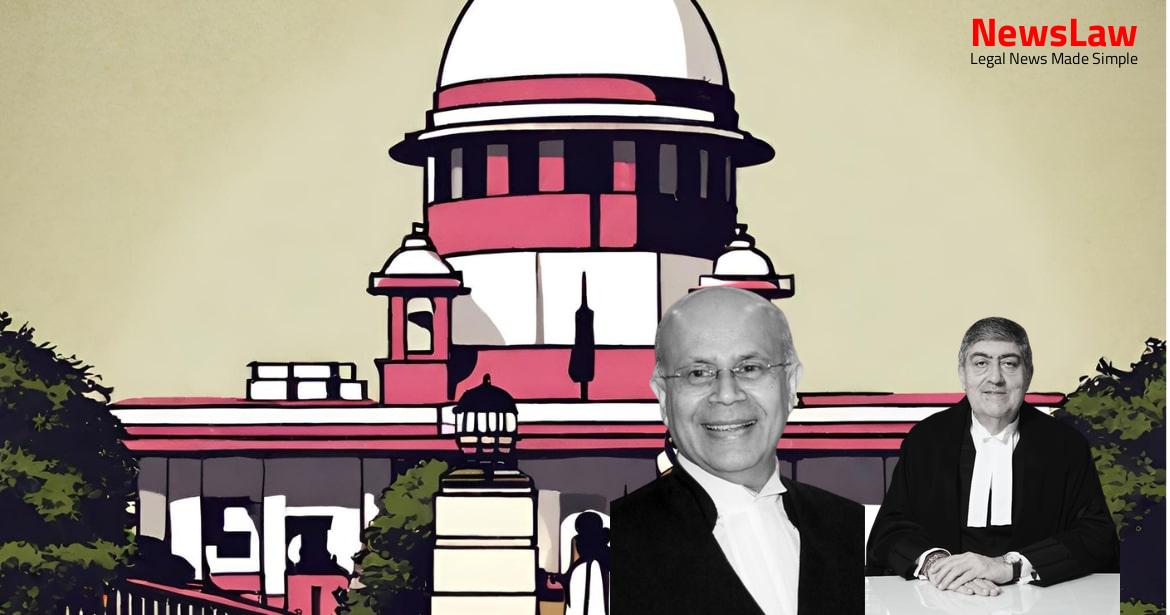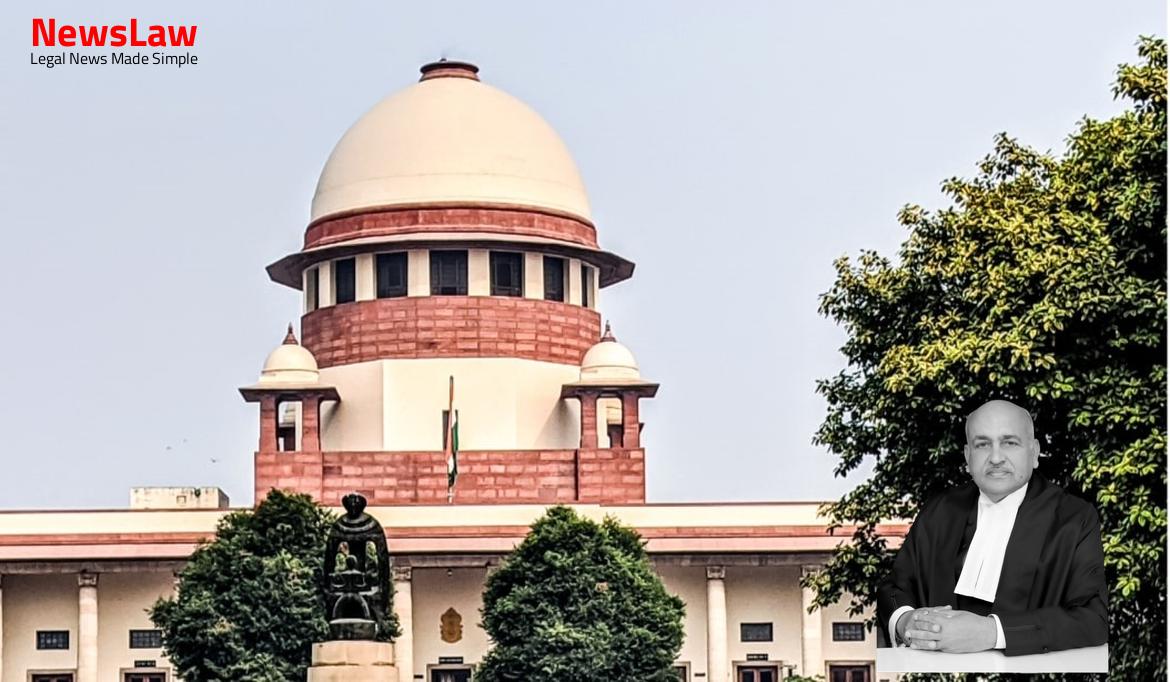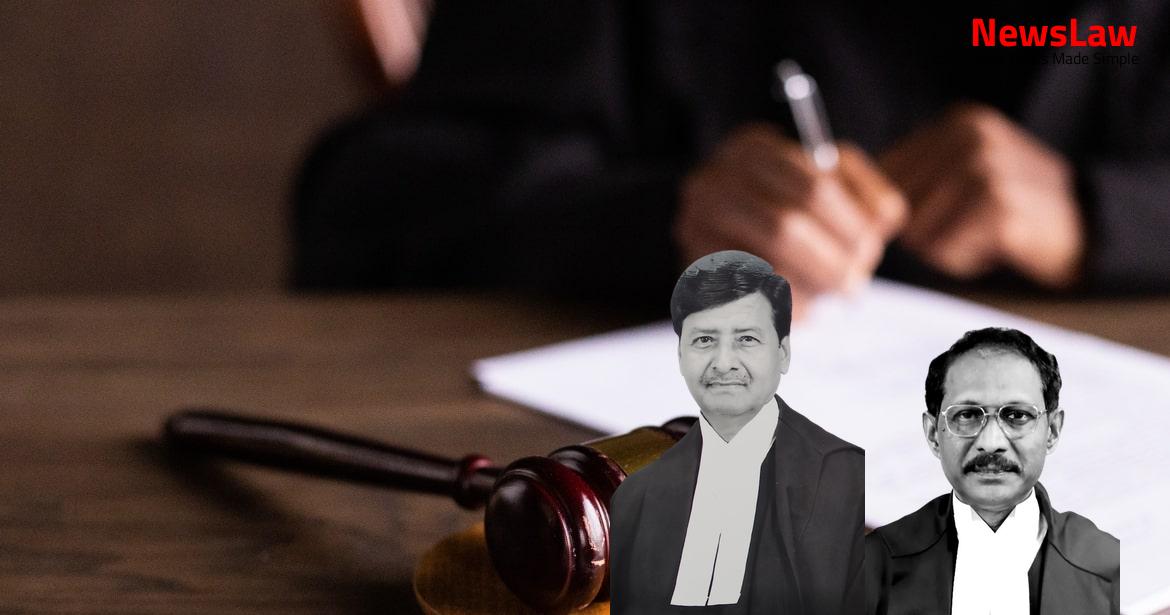In a significant legal case, the Supreme Court of India delivered a judgment regarding the Land Transfer Prohibition Act in Karnataka. The case centered around the protection and empowerment of Scheduled Castes and Tribes in the state. The court’s decision underscored the importance of upholding justice for marginalized communities and safeguarding their land rights. Let’s delve into the details of this crucial verdict that ensures the rights of Scheduled Castes and Tribes are preserved in Karnataka.
Facts
- The State Government of Karnataka granted agricultural lands to members of the Scheduled Caste and Scheduled Tribe community for economic empowerment.
- Private respondents were beneficiaries of such grants in the early 1980s in Bannikuppe Village.
- Documents indicating permission for sale deeds were found to be forged and criminal proceedings are pending.
- The appellant purchased the lands from the private respondents through sale deeds executed beyond the permitted fifteen-year period.
- The sale deeds were executed by the private respondents’ attorney, who is the appellant’s wife.
- Restrictions on transfer were in place to prevent defeat of the lands’ intended purpose.
- Multiple legal attempts by the appellant to challenge annulment of the land transfer to them have been unsuccessful.
- The controversy revolves around the transfer of lands to the appellant by eight beneficiaries in 1997, subsequently annulled under The Karnataka Scheduled Castes and Scheduled Tribes (Prohibition of Transfer of Certain Lands) Act, 1978.
- The grants had a common condition of non-alienation for fifteen years as per clause 8 of the grant agreement.
Also Read: Supreme Court Judgment on Single Till Mechanism for HRAB Calculation: A Comprehensive Analysis
Issue
- The issue of whether the Collector can exercise suo motu power under sub-section (4) of Section 50-B of the Andhra Pradesh (Telangana Area) Tenancy and Agricultural Lands Act, 1950 at any time or within a reasonable time is to be considered.
- This question pertains to the exercise of power by the Collector under specific provisions of the mentioned Act.
- The determination of the timeline within which the Collector must exercise this power is crucial for the interpretation and application of the law.
- The decision on this issue will impact the procedural aspects of the Act and the authority of the Collector in matters related to tenancy and agricultural lands in the Telangana area.
Arguments
- Mr. Dushyant Dave, senior counsel for the appellant, presented a new plea not raised before, arguing that the sale deed executed in 1997 after the enactment of the Act should not render the sale void.
- Counsel referenced cases like K.D. Sharma v. Steel Authority of India Limited & Ors. to support the argument that permission was not required post fifteen years from the grant of land.
- The appellant’s counsel contended that restriction on alienation only applied for fifteen years, and even within that period, alienation was possible under certain conditions.
- There was a dispute on whether Rule 9 could dilute the Act’s provisions, with the appellant’s counsel arguing that Rule 9 did not change the Act’s applicability.
- The counsel for respondents disagreed with the appellant’s interpretation of Section 4 of the Act, stating that the prohibition on alienation applies to transactions post the Act’s inception.
- Reference to judicial pronouncements was made to assert that prior permission was necessary for transactions like the one in question.
- The counsel mentioned that the purpose of the Act was to prevent exploitation of Scheduled Castes and Scheduled Tribes grantees, highlighting the need for prior permissions in such cases.
- The appellant’s counsel argued that settled transactions should not be disturbed after a long period, especially transactions made post-prohibition but pre-Act.
- The appellant relied on the decision in Manchegowda v. State of Karnataka [(1984) 3 SCC 301] to support their argument about the Act’s applicability.
- The larger objective of the Act was discussed, emphasizing its aim to prevent exploitation of vulnerable groups through land transactions.
- Clarifications regarding the interpretation of certain paragraphs and sections of the Act were made during the arguments.
- The learned counsel for the respondents argued that even if the transfer of granted land was made before the Act’s commencement based on an agreement for sale, the subsequent execution and registration of the sale deed after the Act’s commencement would render it null and void under Section 4 of the Act.
- Section 4(1) of the Act states that any transfer of granted land, whether before or after the Act’s commencement, contrary to the terms of grant, provisions of the law, or Section 4(2) of the Act, shall be deemed null and void without conveying any right, title, or interest in the land.
- Section 4(2) specifies that post the Act’s commencement, a sale deed executed and registered without prior permission from the State Government is impermissible for transferring granted land.
- The Act’s scheme and intentions were carefully considered in light of the arguments and provisions discussed.
Also Read: Selection and Appointment of Judicial Officers in Himachal Pradesh
Analysis
- The judgment analyzed the exercise of suo moto power by the Joint Collector after a significant delay of 13-15 years.
- It criticized the authorities for not taking action promptly after the amendment of Section 50-B in 1979.
- The High Court’s decision to cancel validation certificates due to the delay in exercising suo moto power was upheld.
- The case highlighted the lack of a specified limitation period in the Regulations, making Article 65 of the Limitation Act irrelevant for tribal immovable property.
- The importance of the State taking action to protect tribal rights without the need for a civil suit was emphasized.
- The execution of sale deeds was questioned due to misrepresentation and suppression of facts by the appellant.
- The appellant’s claim of obtaining prior permission under Section 4 of the Act was disputed.
- The fraudulent nature of documents and the submission of false information were highlighted, leading to criminal proceedings.
- The significance of exercising suo moto powers within a reasonable timeframe was emphasized in the analysis.
- The Act was introduced to protect the right, title and interest of Scheduled Castes and Scheduled Tribes in granted lands.
- Transfers of granted lands made after the expiry of the prohibition period are not covered under the Act.
- The Act applies to transfers made in breach of the prohibition condition on granted lands.
- Transferees who acquired title before the Act through prescription rights are not affected by the Act.
- Section 4 prohibits transfer or acquisition of granted land without prior government permission.
- Inquiry into illegal sale deeds led to setting aside and restoration of lands to original allottees under Section 5 of the Act.
- Rule 9 imposes a non-alienation restriction for a specified period from the date of taking possession of granted lands.
- The Act nullifies transfers made in contravention of sub-section (2) of Section 4.
- The validity of the Act was mainly challenged regarding its application to transfers made before its commencement.
- The controversy centered around the nullification of transfers made before the Act came into force.
- State is the custodian and trustee of immovable property of tribals to ensure they remain in possession of such property.
- Actions must be taken within a reasonable time when no period of limitation is prescribed.
- Reasonable time depends on the circumstances of each case and the purpose of the statute.
- Delay in taking action in the mentioned case was considered grossly delayed and beyond a reasonable time.
- Interpretation of Section 4 of the Act and Rule 9 of the Rules was disputed by Mr. Huzefa Ahmadi.
- Section 4(2) of the Act imposes an absolute embargo on land transfer without government permission.
- Bar under the Act prohibits transfer even if the grant specified a restriction for fifteen years.
- Judgment in Manchegowda & Ors. v. State of Karnataka & Ors. was discussed in relation to the case.
- The scope of challenge in the case of Manchegowda v. State of Karnataka was limited.
- In Manchegowda case, the challenge was specifically regarding the provisions nullifying transfers of granted lands before the commencement of the Act.
- The validity of the Act in imposing prohibition on transfer of granted land after the commencement was not challenged in Manchegowda case.
Decision
- The appeal against the order dated 02.03.2006 was dismissed by the Deputy Commissioner on 14.11.2006.
- The original names of the parties involved were used in the judgment.
- The order dated 14.11.2006 upheld the decision of the lower court.
- No new evidence or arguments were presented in the appeal before the Deputy Commissioner.
Case Title: SATYAN Vs. DEPUTY COMMISSIONER .
Case Number: C.A. No.-002976-002983 / 2019



